Now you see me: Representation as innovation
Broader representation of gender, race and sexuality can lead to new stories, says Kim Belair, and new stories can enlighten and excite
In Dontnod's flawed but ambitious (and underplayed) title Remember Me, the protagonist is Nilin, a mixed race "memory hunter" whose mission to take down a mega-corporation leads her through an exploration of her past. Her mother is Indian Ethiopian, her father white, French, and both feature heavily in her story. At one point, near the end of the narrative, we revisit a memory of a young Nilin, seeing her as a small child for the first time.
I cried. And while I admit I also cried when Catwoman reappeared at the end of Batman Returns, thinking about Wonder Woman too much, and that one scene in The Incredibles where Dash finally gets to run as fast as he can, I think it's still worthy of note. Because what moved me wasn't something particularly sad or nostalgic, but a simple moment where a woman in whom I see myself (the child of a black woman and a white father) looks into her own past and sees how far she's come. It feels, even before the game's ultimate resolution, like triumph. And that means something. It's also what I'd like to talk more about.
"For all the pain I feel as I play certain games, there is the counterpoint that makes my heart soar"
There are so many incredible, heart-rending pieces about how poorly women are treated in games and in media, how little diversity there is for minorities and the marginalized, and earlier this year I wrote my own talk about the pervasive racism and, specifically, anti-blackness in many AAA games. But for all the pain I feel as I play certain games, there is the counterpoint that makes my heart soar.
And if we're afraid, at times, to dive into something that hurts so many, why not take a moment to pursue something that delights? Rather than a minefield, let's create a goal of empathy and excitement. Let's give the people who haven't been offered that feeling a chance to experience what so many of us know.
A few weeks back, I picked up Dishonored: Death of the Outsider and Uncharted: The Lost Legacy and set them both down on my desk. Beside each other, it dawned on me that I'd collected two games from very successful, widely respected franchises and both had lead characters who were women of colour. I took a picture and excitedly sent it to friends of mine, saying how cool I thought that was; one replied with three (brown) muscle-arm emoji, another with "It's finally happening!", but all, regardless of race or gender, were excited to simply see something different.
That gets lost in many of the discussions about identity politics, diversity and inclusion in games: don't you want to see something new?
Write what you know
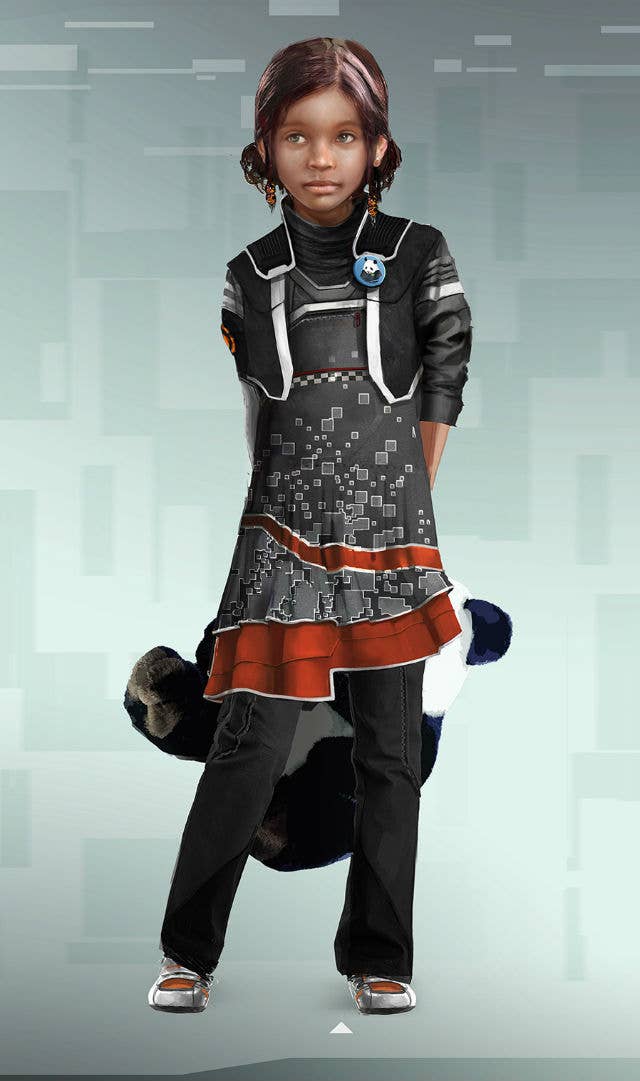
I began writing fiction when I was in elementary school: it was diverse, mostly about my family at first, then about people like myself exploring exciting worlds. Sometimes I was a dinosaur or a vampire. Often I was actually a vampire dinosaur named Elizabeth, married to a robot. But over time, as I grew up and wrote more stories with an audience in mind, I found that the characters I wrote about changed. No longer were they very diverse, no longer did they resemble me.
Rather, I found that increasingly, I told stories about men. About white men, specifically. Throughout high school, I was reading books largely by, about and generally for white men. Whether I enjoyed them or not, I was told that these were the classics, that they were what constituted 'good' literature, worthy of analysis, respect, admiration.
I saw the way other books were considered niche, or reserved for a particular lesson. With the exception of Harper Lee, reading female authors was reserved for when we were talking about women; when it was about the role of women, when we were to analyze characters as women. It was the same when we did a unit on a Japanese author, or tackled texts by black American authors.
Books about white men were simply literature, the rest was special interest. In later high school, when students began to read fan-fiction, or try to tell their own original stories, girls who wrote about people like themselves were branded with "Mary Sue", their spirited and talented heroines dismissed as indulgent "self-inserts". And I, who wanted so badly to be a writer, took that to heart in a way I barely realized.
"And so came years of prioritizing whiteness and maleness in even my own work, in my safest place"
And so came years of prioritizing whiteness and maleness in even my own work, in my safest place. Given the license to create anything, I created the same thing I saw all around me. It was the only way, it was reinforced in me, that people would take me seriously. To gain respect in the Boy's Club, I had to write within the Boy's Club.
I reiterate that this was something I hardly knew I was doing. I didn't see it as insidious then, or as the product of anything said or done around me. I thought I was just being a serious writer, bragging about how my stories weren't about women, weren't about any of my identities, and therefore were for everyone. I could stand up alongside the 'good' books I'd had to read, because my story looked like theirs. It wasn't until perhaps five years ago that it even dawned on me how entrenched I had been in the deeply uninteresting idea that 'white/male' was 'neutral/universal'.
But this is about video games. So let's talk about video games.
Custom-made
Years later, after a lifetime of almost exclusively Nintendo consoles up to the Wii, I picked up a PlayStation 3. It was on that console, and probably for the first time outside The Sims, that I encountered truly robust character creation. In my first few times out, in various games, I found myself creating protagonists who looked the way I believed protagonists should look; white, male, handsome, maybe a five o'clock shadow, short hair.
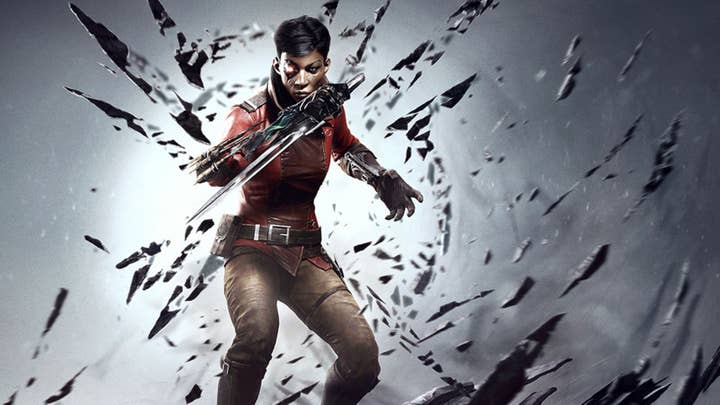
Even though I was an adult now, I was still carrying around the subconscious thought that to put myself or any minority into the story was to somehow set myself apart, to give in to something, to politicize it. It's a thought that, now, seems incredibly silly, but as I speak to more and more women - and particularly women of colour - it is also tremendously common. When we pick the male lead, we get nothing, but often when we pick and celebrate the female, we get an eye-rolling "of course".
I don't recall exactly what prompted me to move away from more on-the-box men to creating my own image, or images closer to mine, or at the very least images far, far away from overrepresented leads. I think it was simply broad personal growth, a self-actualization and confidence born of developing my own voice. Increasingly, marginalized people were speaking out and writing their stories, and the community at large was beginning to more freely engage in discussion, asking why they weren't being seen, championing diversity, fighting against oppressive systems and creating an environment that felt more inviting and inclusive to the feelings I had harboured for years.
But while I can't exactly track my journey from shrinking violet to outspoken advocate, I do remember exactly when I applied it to video games: Mass Effect 2.
While playing two previous games and creating what amounted to Nathan Drake clones as my playable characters, I had started thinking, 'What if X cutscene were happening to a woman? What would change? What if it were happening to someone of a different race? How might I, as player and audience, experience the language and the circumstances differently?' Thus when I came to Mass Effect, I created a black woman, darker than myself (and with significantly better makeup skills), and made her my Commander Shepard, the game's protagonist.
Now, in one of the first playable areas in Mass Effect 2, your fully-customized Shepard must escape a space station and rendezvous with the characters Jacob Taylor and Miranda Lawson, meeting Jacob first. For those who haven't played, Jacob is a black man, a marine, and your first interaction with him is crouching behind cover in a close-quarters conversation. The moment was powerful and remarkable: two black characters, neither cast as a criminal, a gang member, a savage, a stereotype or a sidekick, meeting and conversing one-on-one, the only two people on-screen.
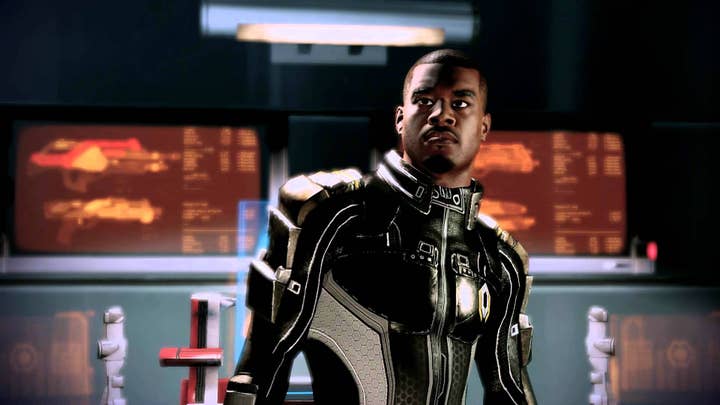
I picked up my phone to text my best friend, who was also playing, and tell her how neat I thought it was that they'd kicked off the game that way, but I stopped halfway through the first sentence. This was not an experience that she would have. It was entirely dependent on a conscious decision I had made to make the character the race that I had, and it gave me something different. Even if the scene played out exactly the same regardless of who your Shepard was, I had experienced something new. And that mattered to me not only as a player, but as a writer, and a storyteller.
These moments are rare, and the more of them we can have, for as many different people as we can share them with, the better.
The average gamer
I was once asked to create a narrative design brief about the ways in which the world of a game might appear or respond differently depending on the gender or race of the player. It was a fun exercise, something that made me really consider the life I live, as well as the lives of any of my friends or colleagues. I asked a variety of people what they thought about certain situations, how they felt their gender/race/etc affected their daily experiences, and the answers I got were enlightening, occasionally hilarious or heartbreaking, and always interesting.
"Writing characters, after all, is always an exercise in empathy. Whether we are meant to like them, we are always meant to understand them"
But none of them were alienating. None of them were impossible for me to relate to; they were all simply human. And not in that trite and diminishing 'we're all human', 'I don't see colour' way. Rather, it made me wonder: why isn't this what more people want?
I hear it all the time, from a great many sources: 'The average AAA gamer is a white male! White guys buy the product! We have to cater to them!' But even if that's taken to be true (my opinion piece isn't the place for facts and figures), I would imagine, or hope, that these same white men also want to experience new and different stories, try out some new perspectives. We, as developers or marketers trying to create a product, seem to have this idea that these white men lack imagination to the point that they can understand and enjoy aliens, monsters, high fantasy, anything, so long as it's through a lens that looks like them.
Maybe I'm being optimistic, but I just don't think that's true. I think it's what we fear is true. I think it's the same attitude that made a high-school me believe I couldn't write about whatever I wanted: based in an oppressive truth, but ultimately misguided.
Writing characters, after all, is always an exercise in empathy. Whether we are meant to like them, we are always meant to understand them, and to believe in their motivations regardless. And yet we seem to think it's perfectly natural to say "I want the average player to love this antagonist, murderer," but asking too much to suggest "I want the average player to love this protagonist, a woman of colour." Why is this? I think it's because we paint in broad strokes; we know that archetypes are universally relatable, but smaller changes (race, gender, sexuality, ability) bear the weight of responsibility. Essentially, archetypes and standard-issue characters are perceived as 'easy', and nuance is 'hard'.
I don't buy into that. Sure, it takes research, education, and discussion, but so does writing any character. Sure, it's potentially sensitive. Sure, it might be seen as political. But all of that is true for every single story we tell, and most of the art we create. And more than that, I firmly believe that it's easier than we think.
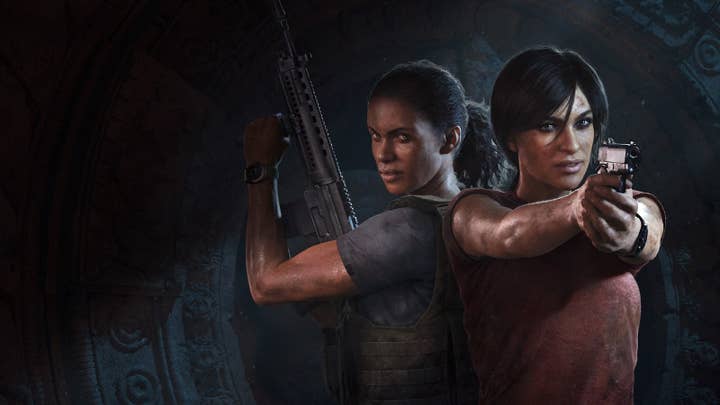
Take Uncharted: The Lost Legacy. There's a bit mid-way through the game where the leads, Nadine and Chloe, are driving across India's Western Ghats and take a moment to discuss how rare and how refreshing it is to work with another woman. It's quick, simple and reads as genuine; given the state of the world, it would be strange if they didn't ever bring it up. In just a couple of lines, I felt seen and understood as a woman, and the optics of them being women of colour deepened my connection.
"The bottom line is that for the majority of reasonable, engaged and innovation-seeking players, new stories should enlighten and excite"
But even if I were a white man, I can't imagine that the moment would feel like distance - I certainly don't feel distant in moments of brotherly bonding between Nathan and Sam Drake in Uncharted 4 - but like closeness, that they are being drawn into something intimate, and shown something new, outside of their experience but no less engaging.
I'm not unfamiliar with the scarier side of this. I don't expect to change the minds of the leftover Gamergaters, or MRAs, or staunch alt-right gamers, or anyone unable to fathom inclusion as anything but a zero sum game. But that's not our job, any more than it is to pander to them. The bottom line is that for the majority of reasonable, engaged and innovation-seeking players, new stories should enlighten and excite. And that, beyond political progress and diversity, is what representation truly gives us.
What's your story?
Another time I cried at a video game was relatively early in the 2013 Tomb Raider reboot. Lara Croft has been through hell, sneaking and shooting her way past a crew of mercenaries out for her blood. Near the end of one particularly vicious firefight, one of her attackers incredulously asks another "She's still alive?" And here Lara replies with a burst of triumphant energy.
"Yes!" she yells. "I'm still alive!"
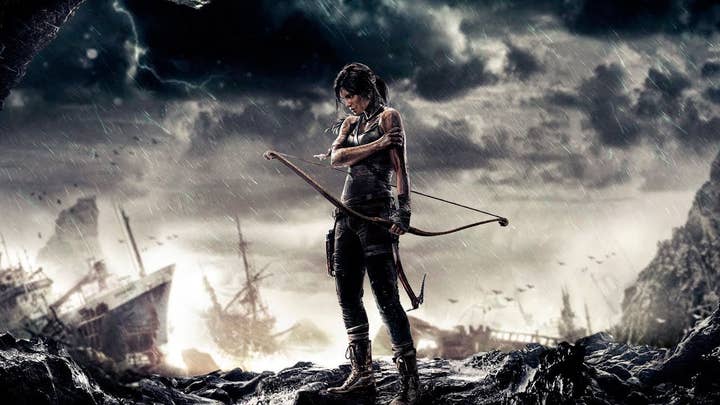
It's essentially just a bark, but it moved me so much that I feel it in my heart even as I think of it now. It's so deviously simple. It isn't a long and drawn out exploration of womanhood, or what it feels like sometimes, and it isn't a line defined by gender, but it is a line enhanced by it. It expresses, for me, for the woman playing, the defiant strength inherent in our survival, our mere existence. They want her gone, but no. Against all odds, she fights back. Against all odds, she finds her power. Against all odds, she is still alive.
And no, it wouldn't be the same if a man said it. Which is beautiful.
It's beautiful because it means that her identity as a character, much as my identity as a person, is relevant to her experience and to the experience of the player. It means that it's familiar and empowering to me, and perhaps to someone who identifies differently it's unfamiliar - but no less thrilling. And both are the purpose and the advantage of varied representation. There is nothing lost and everything gained.
As creators, carrying this forward can seem daunting. It can scare us to step outside ourselves, or to have the conversations we feel are sensitive, uncomfortable. We have to ask questions, and seek the discourse and experiences of those both like and unlike ourselves. So speak to women. Speak to people of colour. Speak to the LGBTQ community, marginalized people, underserved and underrepresented people. Speak to and examine yourself.
And if you find that you've already spent a thousand games seeing little more than an idealized version of your own demographic, be brave and empathetic and listen to other people. You might be amazed at the diversity of stories, and what new and brilliant ideas develop when you hand someone a controller and they suddenly feel a kinship and a joy you've known all your life.
